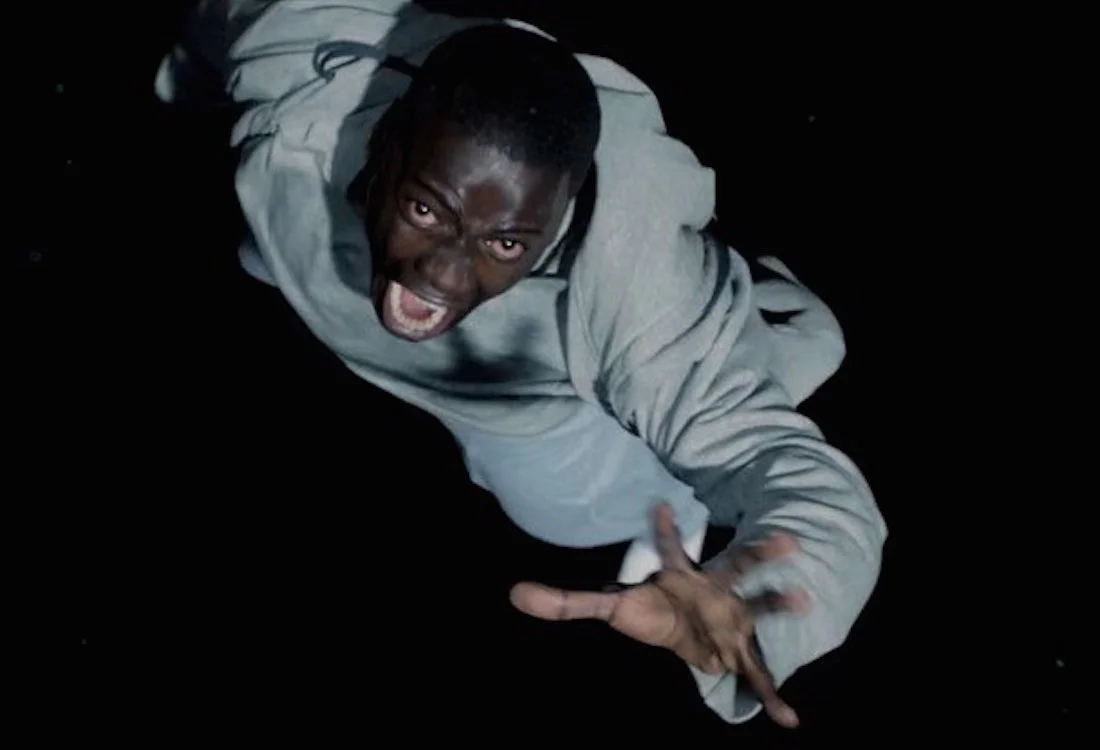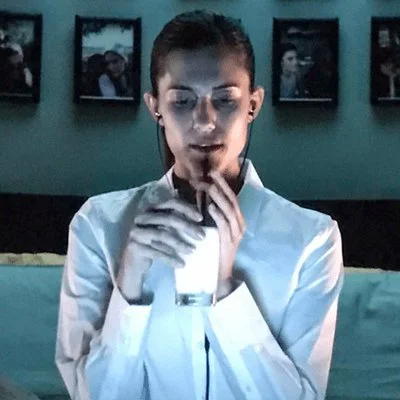What I Learned About Writing From… Get Out
One of the best things to happen to horror is comedian-turned-director Jordan Peele. His debut film, Get Out, won his first Academy Award for best original screenplay. The film is terrifying, thrilling, at times funny, and truly embedded itself in our nation’s milieu as a commentary on racism and race relations. It’s also a goldmine of lessons for writers. So without further ado, here are the writing lessons you can take away from Jordan Peele’s Get Out.
(Warning: Spoilers. If you haven’t seen this masterpiece, do yourself a favor and go watch it, then come back here for the lessons.)
Stakes:
All stories require stakes: what will happen if the protagonist doesn’t achieve their goal? What will be lost? What price will they pay? Often epic fantasy and science fiction feature stakes that implicate the fate of the entire world or galaxy. If Frodo doesn’t destroy The Ring, all of Middle Earth will fall to Sauron. If Luke doesn’t defeat Darth Vader, the entire galaxy will fall to the empire.
In thrillers, the stakes are often life and death. Thomas Harris raises the stakes in Silence of the Lambs from justice vs. injustice (if Clarice doesn’t catch Buffalo Bill, a murderer will go free) to life and death when a US senator’s daughter is kidnapped (if Clarice doesn’t catch Buffalo Bill, the daughter will be killed).
Life and death may seem like the penultimate stakes for any story, but in horror, the best stories put even more at stake. The writer goes beyond this and puts the character’s very soul at stake by facing them with a fate worse than death: damnation.
That’s the case here in Get Out.
If Chris Washington doesn’t escape the clutches of the Armitage family, he won’t simply die. In fact, he won’t die at all. He’ll be alive, but his consciousness will be trapped as he’s forced to spend the rest of his years watching someone exploit his body. Peele ups these stakes by showing both Chris and the audience exactly what the sunken place means when Logan wakes up. It’s an effective showing moment so that we don’t simply have to take the Armitage’s word for it. With stakes like this, a simple death looks good.
What can this tell us about writing?
Look beyond life and death when plotting your character’s stakes. Read The Shining for a stellar example of this. If Jack Torrance doesn’t solve the mystery of the Stanley Hotel, he won’t simply die but will be responsible for the death of his wife and child. This fate is also inherent to the possession trope, where characters are already living a fate worse than death. Think Evil Dead where killing the possessed is a better fate than what will follow if they don’t. In Hellraiser, if Kristy doesn’t deliver Frank to Pinhead, she won’t simply die, but her soul will be torn apart. Ask yourself, what is your character’s hell? For more on genre stakes, I also suggest reading The Story Grid.
Subverting Tropes:
Get Out does a lot of things brilliantly, but one of its greatest feats is how slickly it subverts the white savior trope. Peele pulls this off by starting early, with Chris and Rose on the way to her family’s house. Rose hits a deer and a cop comes to the scene. Naturally, the cop does what cops do best and gives the innocent black man crap. By having Chris act obliging and non-confrontational when the cop asks for his identification, it gives Rose the opportunity to say what we all wish Chris could say for himself. By using her white privilege to defend him from racist treatment, it forces the audience to root for Rose.
It’s a subtle but important decision as both the audience and Chris are positioned to mistakenly believe she has his back. When she turns out to be a central aspect and not only a willing but enthusiastic participant in her family’s plot, the revelation becomes a shock.
What can this tell us about writing?
The best subversions of genre tropes aren’t achieved when authors nudge their readers with a wink and say, “See what I’m doing here?” The best subversions of trope are achieved by reinforcing the elements of that trope in order to mislead the audience so that they don’t see the twist coming. If you want to subvert a trope, brainstorm what elements reinforce that trope. How can these be implemented into your story? Which ones can be turned on their heads to leave your readers gasping?
Endings and Audience Needs:
In horror, I think happy endings tend to be a bit controversial. Some people love them, some people hate them. Every story requires what it requires, but I think Get Out offers a lot of food for thought. My favorite moment in Get Out (and arguably in all of cinema) was the moment when Chris finally escapes and defeats Rose, only to find red and blue lights flashing in the distance.
The entire theater had an audible reaction. That single moment, in my opinion, has said more about our society than any other purely because of the reaction it elicited. When Rod emerged from the car, the theater erupted in cheers. Literal cheers.
I was surprised to learn this wasn’t the original ending. In the original ending, Chris is arrested by police after murdering Rose and goes to prison. In a narrated version of the alternate ending you can find here, Peele explains that he changed the ending because he felt that viewers needed hope at that time.
What can this tell us about writing?
First, Peele’s happy ending is punctuated by the gut punch of those flashing lights. Would the audience have cheered as loudly had Rod arrived in a normal car? I’m not certain. If you hear writers talk about turns, THIS is what we mean. Skilled writers know how to direct and misdirect reader expectations for maximum emotional impact.
Now, there are different camps in the writing community. Some authors believe their artistic vision matters more than keeping readers happy. Stephen King wrote a whole book about readers versus a writer’s artistic vision. I, for one, am in the camp of satisfying readers. However, like Jordan Peele, I don’t necessarily believe in delivering the reader what they want, but rather what they need.
Writing the most grim, depressing ending tends to be the default for some horror writers. Regardless of what camp you reside in, all writers should be able to clearly articulate their artistic choices. So, ask yourself, why this ending and why now?
That’s it for now. What lessons did you take away from Get Out? What movie would you like me to dissect next? Let me know in the comments!




